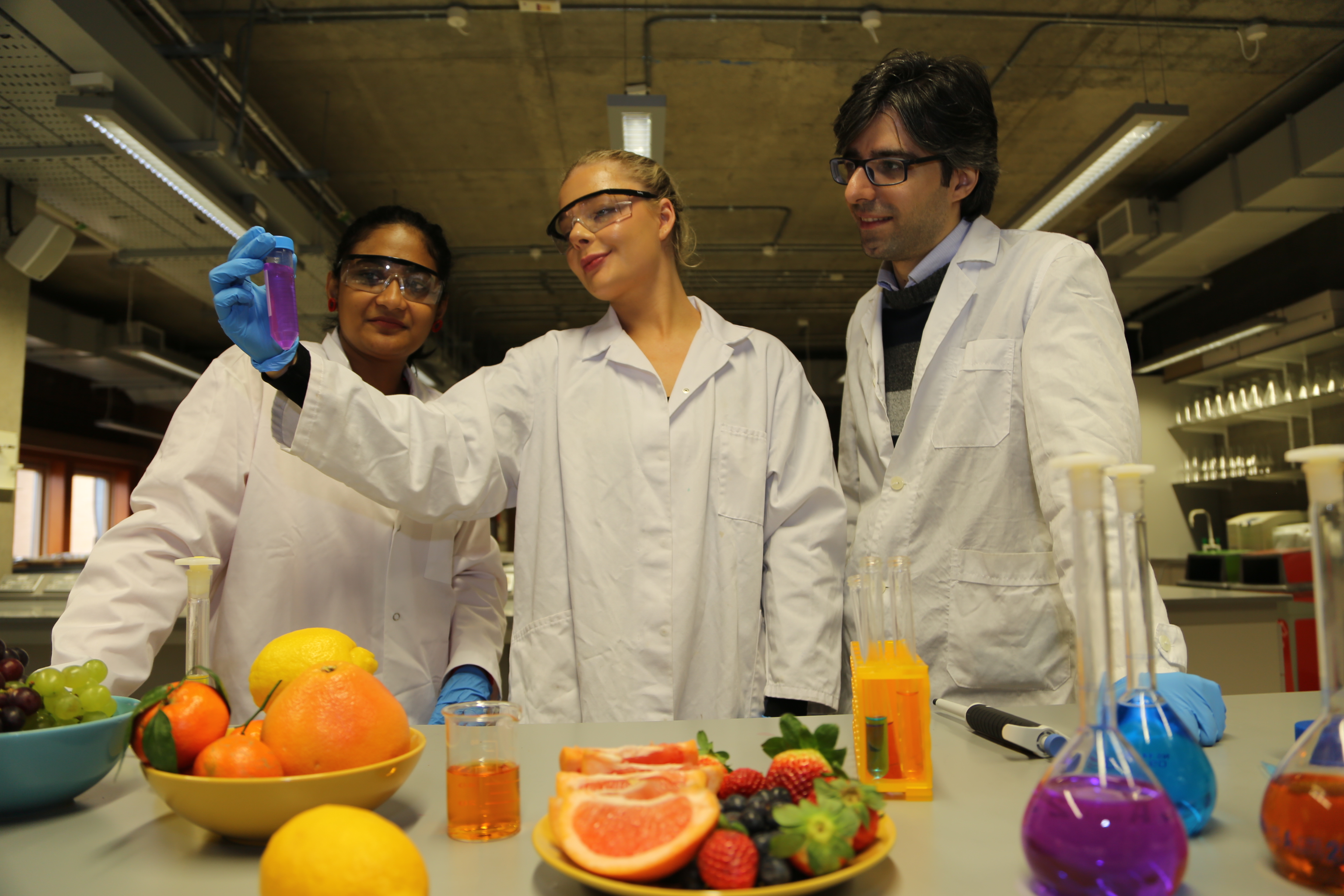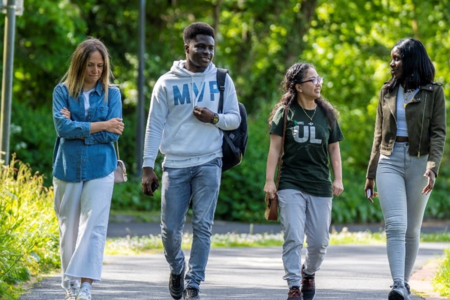From a young age, Ignatia Malarmary Vanaraja had always wanted to move abroad and pursue a master’s degree. Already holding a special kind of enthusiasm towards science then, she would later forge a career in biotechnology before setting off to realise her ambition: joining University of Limerick’s (UL) interdisciplinary and innovative Master of Science in Functional Foods and Product Development.
University of Limerick is a young, energetic and enterprising university with a record of innovation in education and excellence in research and scholarship. Located on the west coast of Ireland along the picturesque River Shannon it enjoys an unspoiled natural environment blended with state-of-the art teaching and research facilities. Furthermore, in the latest QS rankings (2023), the University of Limerick has distinguished itself by securing the top spot in Ireland for several key metrics: Overall International Student Satisfaction, Overall International Student Happiness, Value for Money, and Career Goal Preparation.
Complementing its academic and research prowess, Ireland is a clean, high quality and innovative producer of excellent food and drink products. Agri-food is Ireland’s most important indigenous sector, accounting for approximately 163,000 jobs in the country. UL hosts the Dairy Processing Technology Centre, a world class collaborative Research and Technology Centre where global academic experts and industry partners advance the future of sustainable dairy processing by addressing key sectoral challenges.
This programme Master of Science in Functional Foods and Product Development has an exciting structure and modules. They aid students in designing in vitro (i.e., chemical and cell-based protocols) and in vivo (i.e. yeasts, animals, and human interventions) protocols. What follows are modules that get students to analyse data and make inferences about the effectiveness/functionality of the ingredient and/or food models developed. Ignatia was convinced she had chosen the best university and programme to prepare for opportunities in the food industry, food science, product development and functional foods development. “The course modules, assessments, presentations, and class activities allow us to develop the key skills required for entering an industry or a research position,” she says.

What sets the MSc in Functional Foods and Product Development at UL apart is its experiential learning. Source: University of Limerick
Twinkle Jose is just as enthusiastic about the potential of functional foods to positively impact human health. She plans to one day work with leading companies to develop innovative food products or pursue further research in food science. With every passing day in the programme, she’s getting closer to making this a reality. “This programme stood out to me for its evidence-based approach, emphasis on research excellence, and comprehensive curriculum covering everything from conceptualisation to validation of functional foods,” she says. “It provided the perfect platform to enhance my skills and knowledge in an area that I am truly passionate about.”
What further sets this Faculty of Science and Engineering programme apart is how experiential it is. In one year (or two, if you take the part-time route), you’ll sharpen practical skills such as sensory and consumer analysis and developing, modelling, and optimising foods and ingredients. “I particularly relish the practical aspect, which involves characterising and analysing bioactive compounds in food,” says student Emma Brennan.
As part of her current research project, she is creating a vegan hydrogel jelly from blackcurrant press cake. Emma has always been fascinated by the role of nutrition in human lives. Before joining the M.Sc., she had previously completed undergraduate studies in Food Science and Health at UL for four years. Today, she’s “thoroughly enjoying” the programme’s projects, challenging as they may be.
Whenever she runs into any issue, Emma has someone to turn to. Professors run activities such as group discussions, tutorials, and one-to-one consultations — all of which help students engage more with the modules. They also focus on project management, innovation, and entrepreneurship — crucial soft skills to succeed in any industry today. “The level of support throughout the MSc programme has been exceptional,” Brennan says. “There’s an open-door policy with all our lecturers, and everyone is willing to help at any time.”
For Jose, UL professors have been instrumental in shaping her positive learning experience here. “Professor Daniel Granato’s expertise and dedication have provided invaluable insights and mentorship every step of the way,” she says. “This level of support has not only enhanced my academic journey but has also fostered a sense of belonging and camaraderie within the student community, making my time at UL truly enriching and fulfilling.”
The level of support at UL is impressive. It fosters an environment that brings students together through the Postgraduate Students Union, clubs and societies, the Academic Registry, and much more. “UL is itself a place full of opportunities and experiences. One does not need to be the best student at UL. The university itself helps mould us in a way that we get the best out of our time here,” says Ignatia.
From day one, Ignatia has felt welcomed and belonged. “Starting from the orientation programmes, the career opportunities, the extracurricular opportunities, and the events by the Postgraduate Students Union have always encouraged me to be more outgoing,” she says. “The friendly environment of Limerick and the greenery that surrounds the university is amazing. The location of the university with the natural environment with the Shannon River running through the campus is beautiful.”
UL graduates have these memories to cherish throughout their lives — and as they forge thriving careers. Ignatia is optimistic for what lies ahead of her, whether that be roles in food technology, food chemistry, nutrition, or related roles in research and development. “Giving sustainable and innovative product development ideas whilst concentrating on the health aspects through functional foods is what I am hopeful about pursuing after my graduation,” she says. “I would be interested in new research and industrial opportunities available throughout Ireland and UL to enhance my knowledge.”
As for Emma, she’s been enjoying every minute of her time at UL and looks forward to a future career in research. “This year has flown by,” she says. “The modules I’ve taken have significantly developed my professional attributes and skills. I’m excited to apply these new skills at the industry level to make a real difference.”
Apply for the MSc in Functional Foods and Product Development today.
Follow the University of Limerick on Facebook, Instagram, LinkedIn, TikTok, YouTube, and X.












